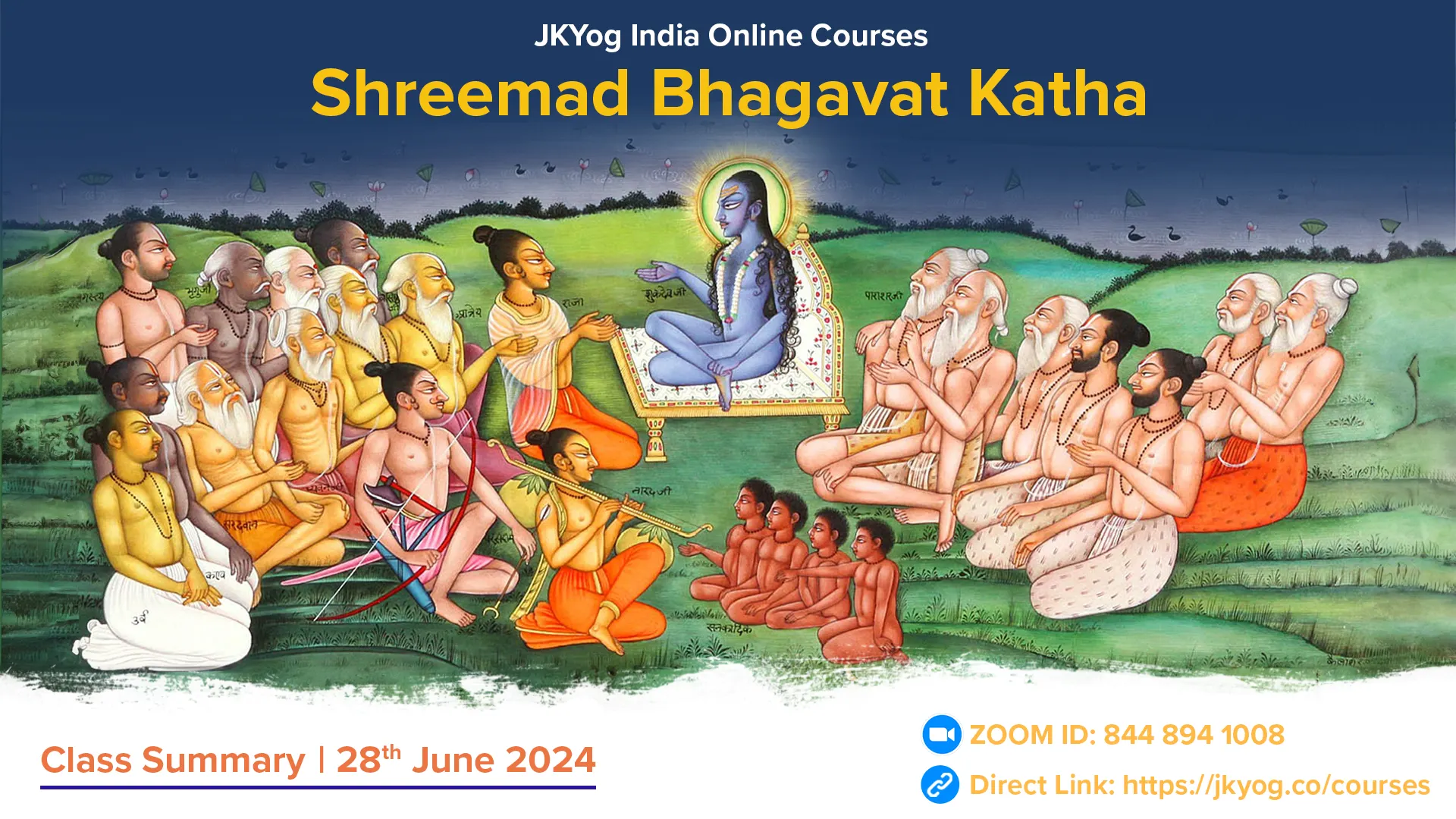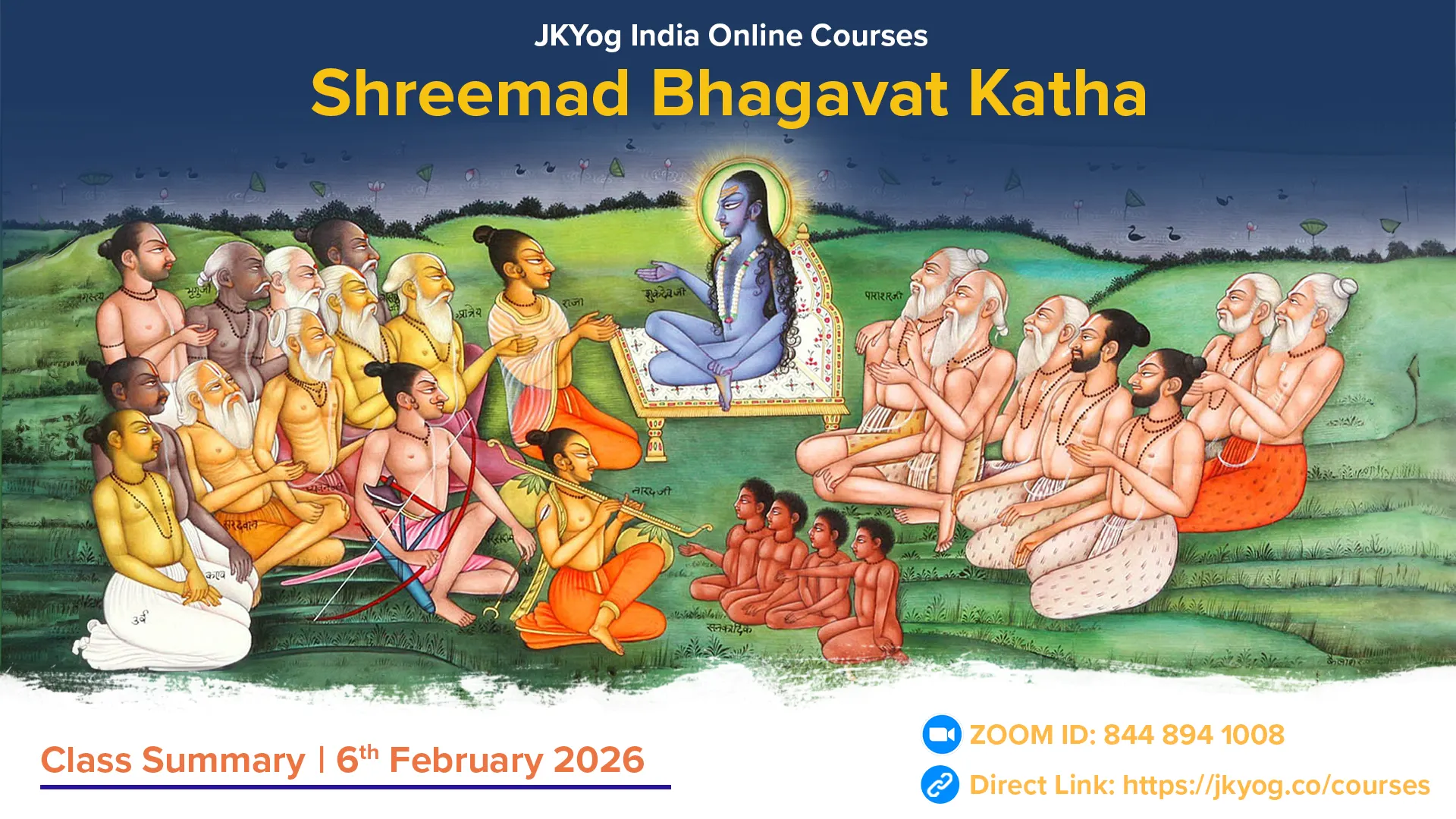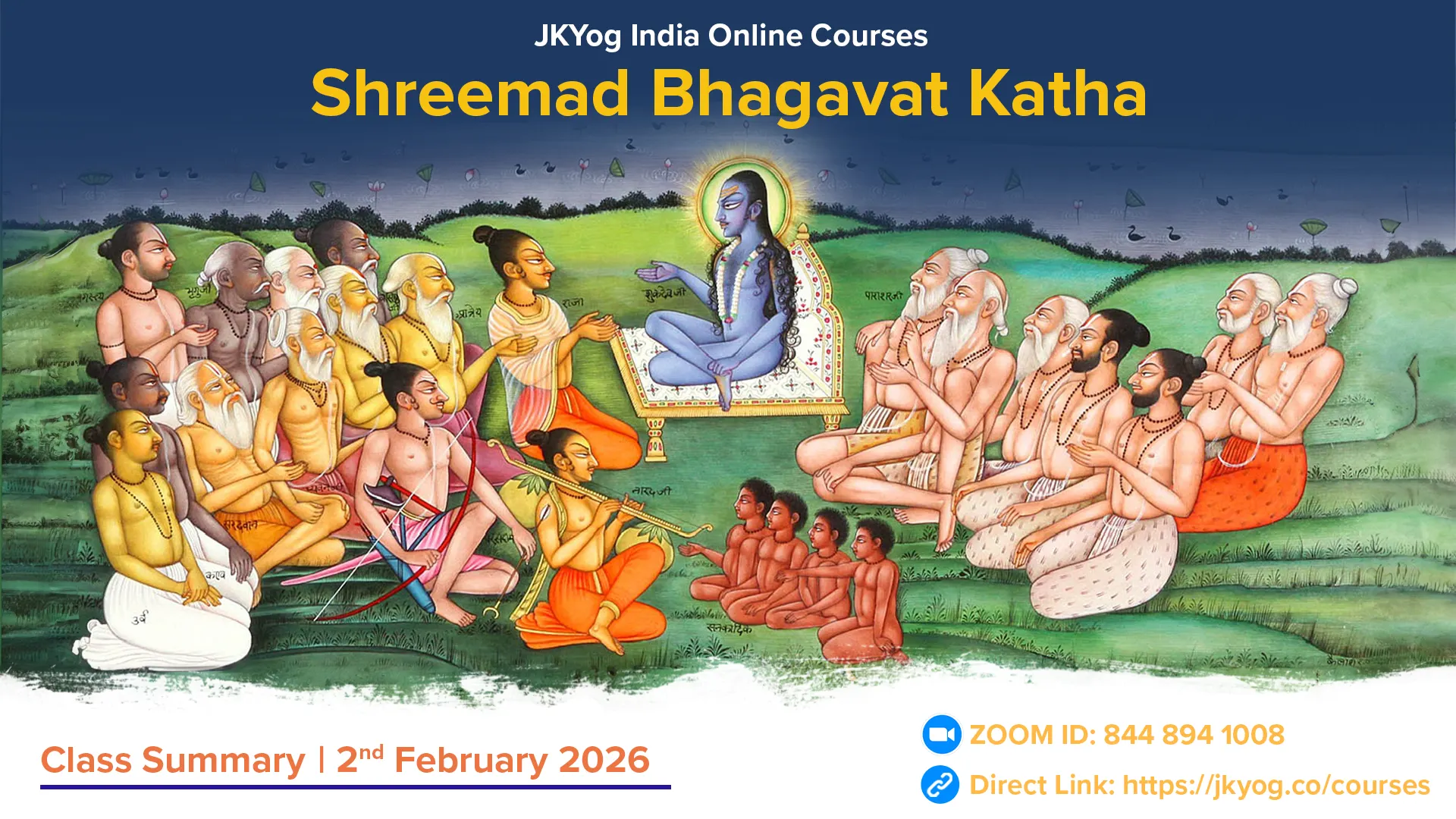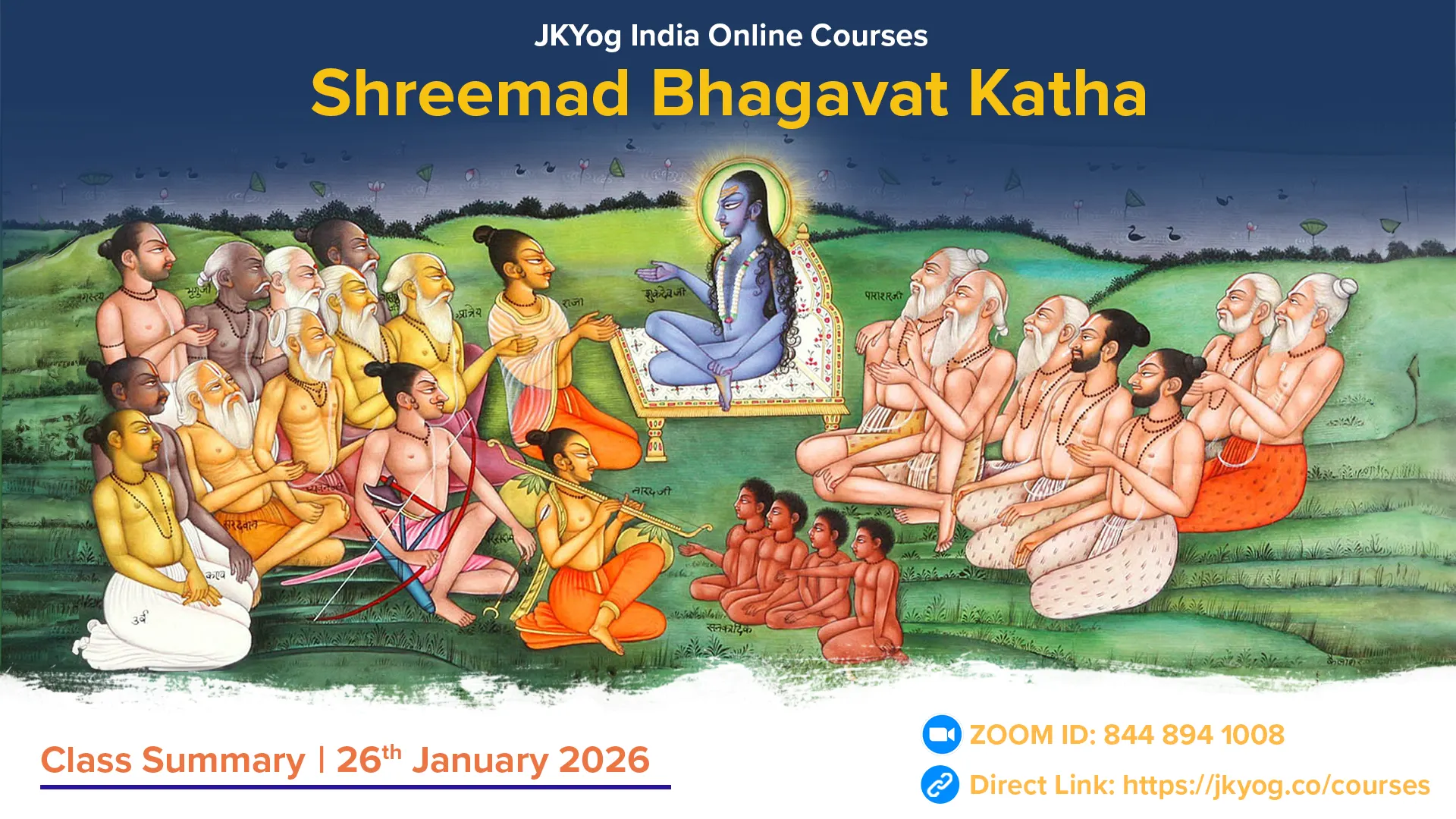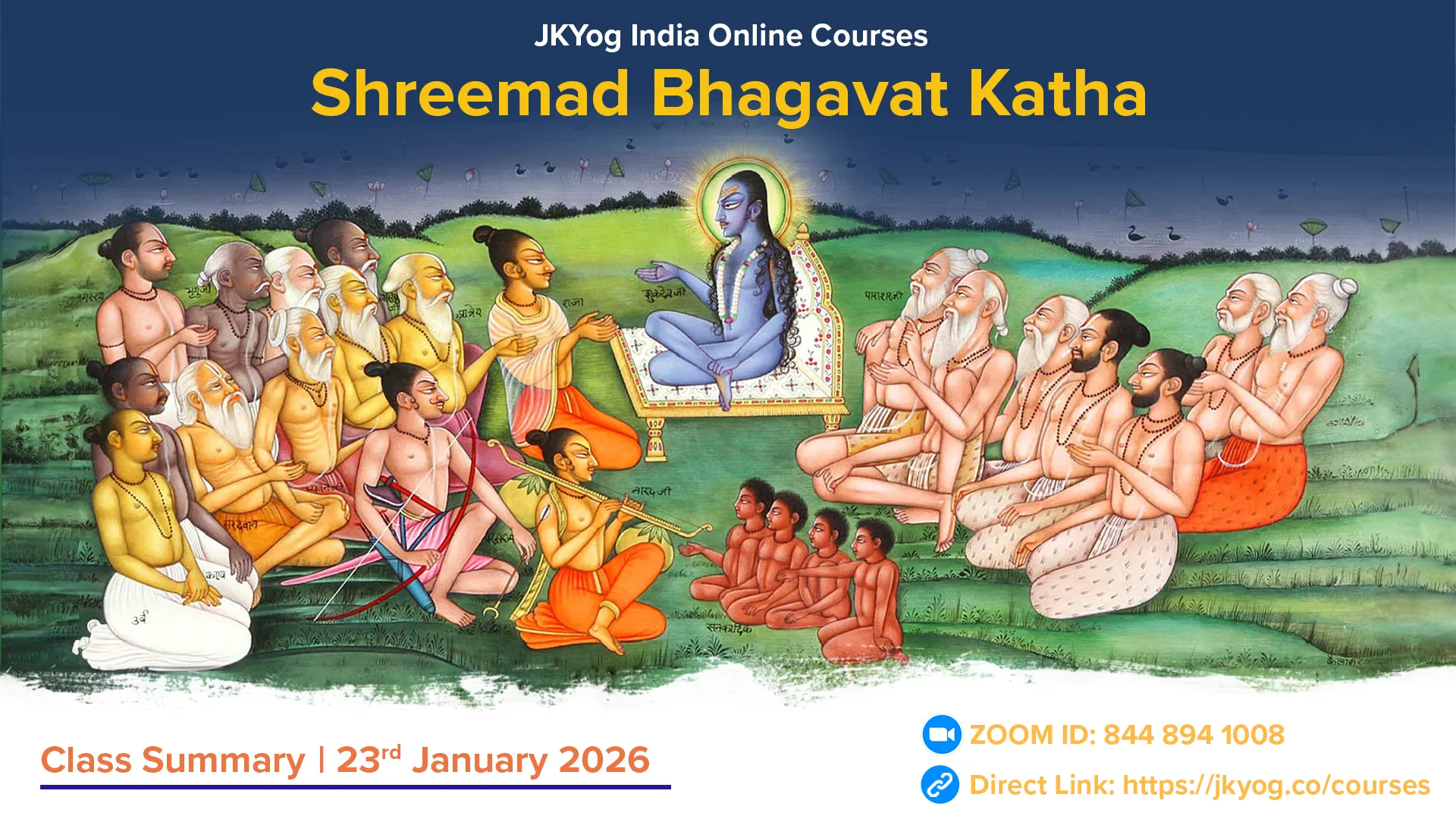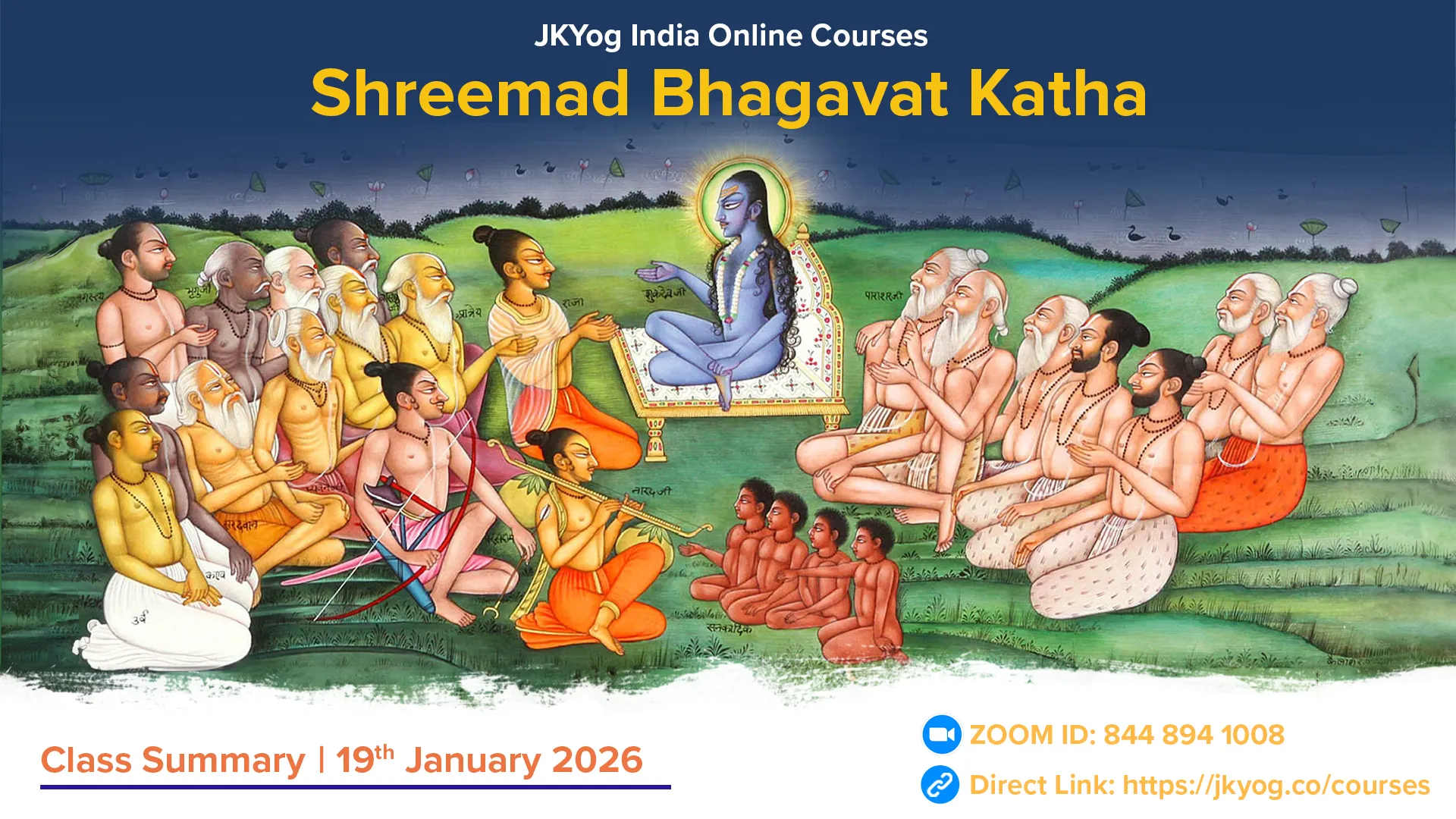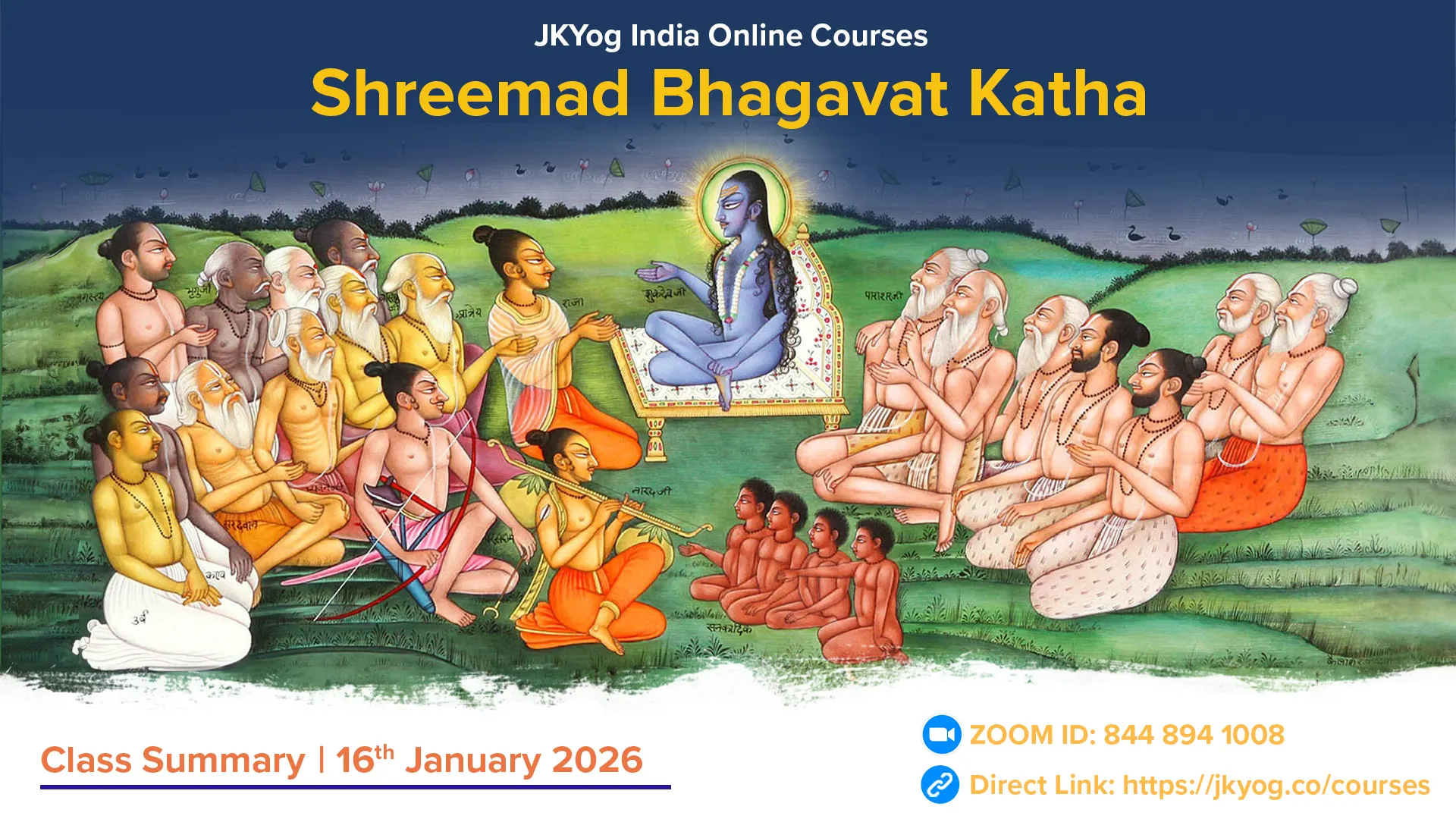Sutji tells Shaunakji that Bhagwan has had countless avatars. Rishis, Manus, Devas, Prajapatis, Manus' sons, and all other great and powerful beings are all parts of Bhagwan.
Ete chamshakalaha pumsaha Krishnastu Bhagavan svayam |
Indrari-vyakulam lokam mridayanti yuge yuge ||
All these avatars are either the Anshavatar or the Kalavatar of God, but Bhagwan Shree Krishna is the Supreme Being Himself. When Indra and the others become distressed by the atrocities of the danavas, then God protects them by assuming various forms in every age. (Bhagavat 1-3-27)
How was the body of the Lord created?
Although all forms or avatars are created by Bhagwan Himself through His material energy called maya, they remain divine and spiritual, unaffected by Maya. Just as the wind moves clouds and dust, people with limited understanding say that the clouds and dust are moving independently; similarly, the material body, made of insentient maya, functions as if conscious due to its contact with the sentient soul. However, undiscerning individuals consider the body to be the conscious one, ignoring the role of the soul.
Sa veda dhatuha padavim parasya duranta-viryasya rathangapaneha |
Yo amayaya santata-yanu-vrittya bhajeta tatpada-saroja-gandham ||
Bhagwan's power and prowess are infinite; no one can fathom them. Despite being the creator of all worlds, He transcends them all. His Leela and mysteries can be understood only by those who, with sincerity and devotion, constantly engage in contemplating and serving His divine lotus feet. (Bhagavat 1-3-38)
When, how, and why Ved Vyas composed the Vedas, Puranas, and Itihasas?
Sutaji says that Ved Vyas composed the Bhagavat Puran and passed it on to his son Shukadev for the welfare of the souls. Shukadevji further narrated it to King Parikshit. When Shree Shukadev Maharaj was narrating the Bhagavat Puran to Parikshit, I (Sutaji) was also sitting there. It was there that I studied it with his gracious permission.
Shaunakiji further asks:
- By whose inspiration does Vyasji compose the Bhagavat?
- How does Shukadevji, ever absorbed in the Supreme's bliss and remaining mouna (silent), narrate this story to Parikshit?
- Shukadevji typically stands at the threshold of a worldly man's house only for the time it takes to milk a cow. In this case, how does he spend seven days in one place narrating Bhagavat Katha?
- What is the story of Parikshit's birth and death?
- How does the king, a descendant of the Pandavas dynasty, abandon all the empire's wealth and sit on the bank of the Ganga, fasting till death while listening to Bhagavat?
Sutaji replies, "In this very Dwaparyug of the current Chaturyuga, Ved Vyas, the avatar of God, was born from Satyavati's womb by Maharishi Parashar. One day, bathed in the holy water of the Saraswati river at sunrise, he sits alone. Possessing knowledge of the past and future, he sees that with the decline of dharma in each Yug, the power of material things weakens. The human intellect falters, and lifespans shrink. In this situation, contemplating everyone's welfare, he divides the Ved into four parts. He then composes the Itihasas and Puranas, also known as the fifth Ved. Further, he made his disciples graduates of:
- Rigveda- Pail
- Samaveda- Jaimini
- Yajurveda- Vaishampayana
- Atharvaveda- Sumantu Muni
- Itihasas and Puranas- Romaharsha
All these sages further divide their respective branches, creating many branches of the Vedas. This allows even those with limited understanding and memory to retain the Vedic knowledge. Yet, even after this accomplishment, Ved Vyasji remains troubled. He sits by the riverbank, his mind heavy. He contemplates, "Though I've revealed the essence of the Vedas through the Mahabharat, a sense of incompleteness lingers in my heart. Despite my capabilities and the power of Brahmatej, why do I feel lacking?" As Ved Vyasji wrestles with these thoughts, Naradji arrives. He inquires, "Are you content, having authored a work like the Mahabharat?" Vyasji then replies, "You, the mind-born son of Brahma, know all. Please tell me what remains lacking within me."
Naradji responds, "Vyasji, you have yet to sing the pure glory of the Bhagwan. Any scripture or wisdom that fails to ignite the love for God remains incomplete. You haven't captured the glory of Shree Krishna in the same way you've delved into dharma, artha, kama, moksha, and so on. Even the most eloquent speech, brimming with emotions, figures of speech, and feelings, is considered as impure as a crow-infested dumping ground if it fails to sing Shree Krishna's praises. Conversely, speech that may lack elegance or contain imperfections yet overflows with God's names in every verse has the power to eradicate all sins.
Remember the divine acts of God, for they liberate all living beings from bondage. Those who yearn to speak of anything other than God's divine Leelas become entangled in the very names and forms created by their own desires. Their intellect becomes clouded by distinctions. Just as a boat tossed by wind gusts finds no steady mooring, their fleeting mind will not find any shelter. Worldly people are naturally drawn to worldly matters. Even within the realm of dharma, you've prescribed self-serving actions (yagya, puja, worldly rituals). Misled by your pronouncements in the Vedas, they remain trapped in these rituals, thinking, 'Ved Vyas himself instructed this!' Only a thoughtful and knowledgeable soul can discover bliss by discerning the path of devotion to God hidden within the Vedas.
Therefore, for the benefit of those caught in the cycle of worldly karma-dharma, you must describe the divine Leelas of God. No human can hope to traverse the vast ocean of worldly life without hearing and reflecting upon God's divine acts."
Naradji concludes, "Everyone recognises you as an avatar. My words are merely a gentle nudge. Though unborn, you have taken birth for the welfare of living beings. Therefore, it falls upon you to describe the divine Leelas of Shree Krishna."
Idam hi pumsas-tapasah shrutasya va svishtasya sutasya cha buddhi-dattayoh |
Avichyuto'rthah kavibhir-nirupito yaduttama-shloka-gunanu-vartanam ||
Scholars have explained that the only purpose of a man's penance, the study of Vedas, Yajnas, Swadhyaya, knowledge and charity is to describe the divine virtues and deeds of Shree Krishna. (Bhagwat 1-5-22)
Story of Naradji’s Past Life
Naradji narrates his previous birth: "I was then a maid servant's son. During the Chaturmas, the rainy season, many sages came to our place and stayed in one place practising bhakti. Even as a young boy, I got the opportunity to serve the saints. Speaking little and displaying a humble nature, I found great joy in their presence. I ate their leftovers and served them with undivided attention, which purified my conscience. My young mind became engrossed in the stories of God's divine Leelas. Pleased my service attitude and devotion, they imparted divine knowledge to me as they prepared to leave after the rainy season."
Naradji continued- a desire to abandon everything and dedicate myself solely to bhakti arose within me, but my mother's deep attachment tethered me. Then, tragedy struck. One day, a snake bit my mother, and she died. Accepting this as a blessing in disguise, I headed north. I crossed numerous cities, villages, and fields, finally reaching a dense forest.
Exhausted from the journey and famished, I bathed in a nearby pond, quenched my thirst, and settled beneath a Peepal tree. Following the guidance of those great men, I began meditating on God's lotus feet. Tears filled my eyes during meditation, sending a thrill through my body. Suddenly, God granted me a divine darshan within my heart. After a fleeting glimpse, God disappeared. Restlessness overwhelmed me again, and I made numerous attempts to regain the vision but in vain.
Then, God spoke to me, 'Innocent child! I revealed a glimpse of my form solely to awaken the yearning for me within your heart. A true devotee gradually renounces all worldly desires to attain me. Your brief service to the saints has fixed your mind on me. Now, you would shed this mortal and impure body and become my parshad. Your unwavering resolve to reach me would never falter. Even at the time of dissolution of the creation, by my grace, you would remember me.'
The omnipotent God, invisible like the sky, fell silent after these words. Having experienced his grace, I shed my shyness and began chanting and remembering God's auspicious and sweet names and divine acts. Desire, pride, and envy had already vanished from my heart. Now, I wandered the earth joyously, awaiting the opportune moment. When the time arrived, I died.
After the end of the Kalpa, when Narayan rested within the cosmic ocean's embrace, encompassing all creation during the Pralaya (dissolution), Brahmaji also initiated the process of reabsorption. I, along with Brahmaji's breath, entered into His heart. Then, after a thousand grand cycles (Chaturyugs), Brahma awakened with the urge to create anew. By the grace of the Divine, I emerged from his senses alongside venerable sages like Marichi. Since then, throughout the three worlds, I have roamed freely within and beyond Vaikuntha, the celestial abode of Vishnu. With melodies played upon my Veena, graced by the voice bestowed upon me by God, I travel the world, endlessly singing of His glorious divine acts.
"Whenever I begin singing the divine acts," Naradji concludes, "the Lord, as if summoned, immediately appears in my heart and grants me darshan. For those whose minds are perpetually consumed by sensual pleasures, reciting the Lord's divine Leelas is the ship that will help them cross the worldly ocean. This, I am telling you out of my own experience."
With these words, Naradji departed. Vyasji then focused his mind, devoting himself to bhakti. He attained a vision of the Bhagwan and His maya through this devotion. He understood that the soul, captivated by His maya-shakti, must practice bhakti to transcend it. With this realisation, he composed the Bhagavat Puran. Listening to this scripture, the soul can attain pure love for Shree Krishna. To propagate the Bhagavat Katha, he then imparted it to his son, Shukdevji.
Shaunakji, consumed by curiosity, inquires of Sutaji: "By whose desire did Shukdevji choose to recite the Bhagavat?" Sutaji, in response, explains: "Those who possess true knowledge, those whose knots of ignorance have been unravelled, those who find constant bliss in the self – even liberated souls and Siddhas (enlightened beings) – practice bhakti without any expectation. The divine qualities of God are so sweet that they naturally draw everyone towards Him. Furthermore, Shukdevji, held dear by devotees and the son of the great Ved Vyas, finds his heart drawn by these qualities, compelling him to delve into the vast ocean of the Divine's Leela Katha.”
Summary: JKYog India Online Class- Shreemad Bhagavat Katha [Hindi]- 28.06.2024

